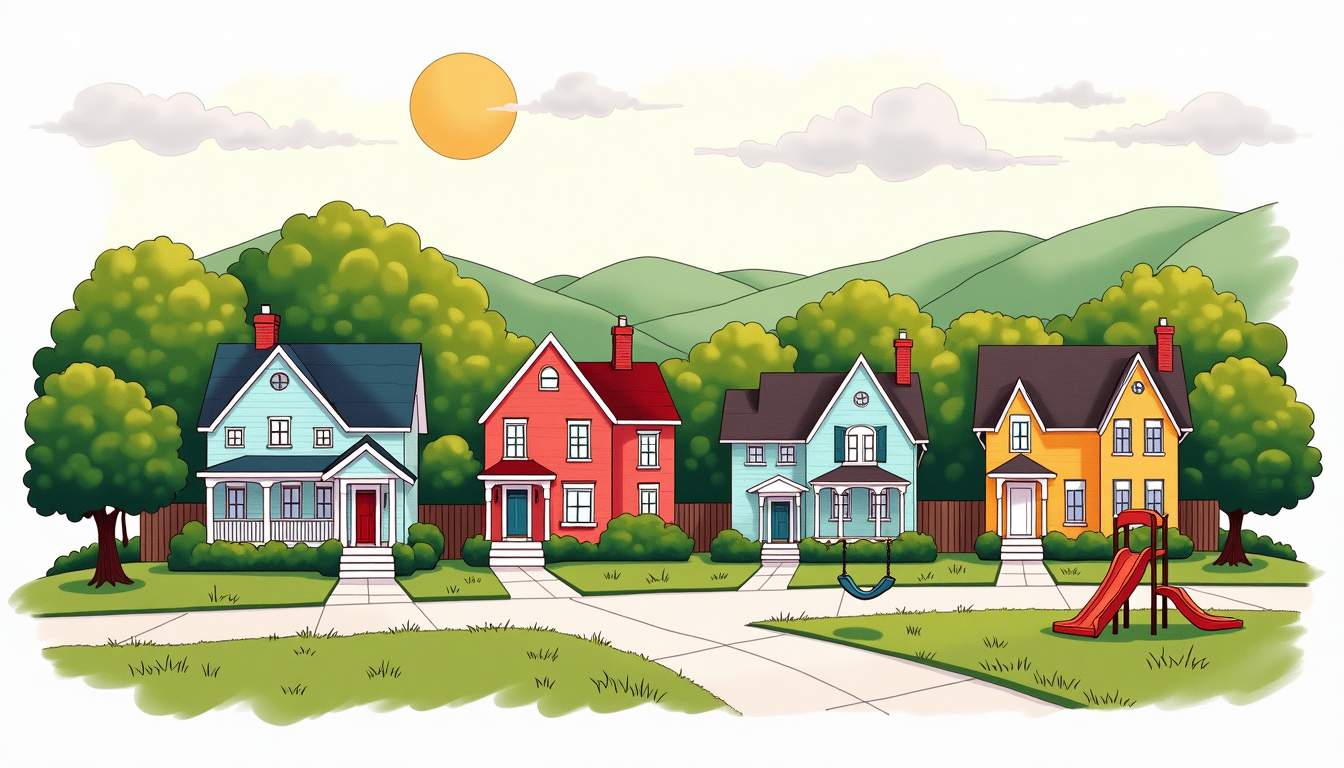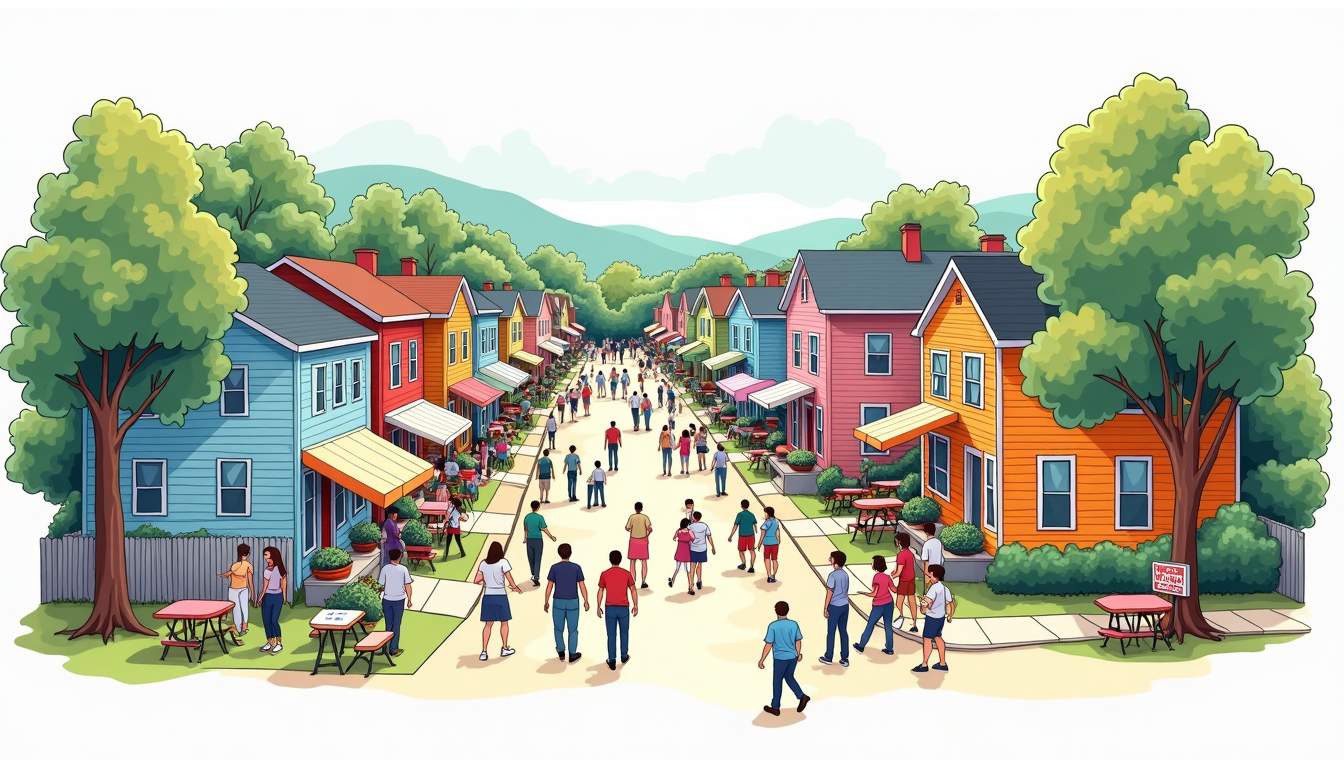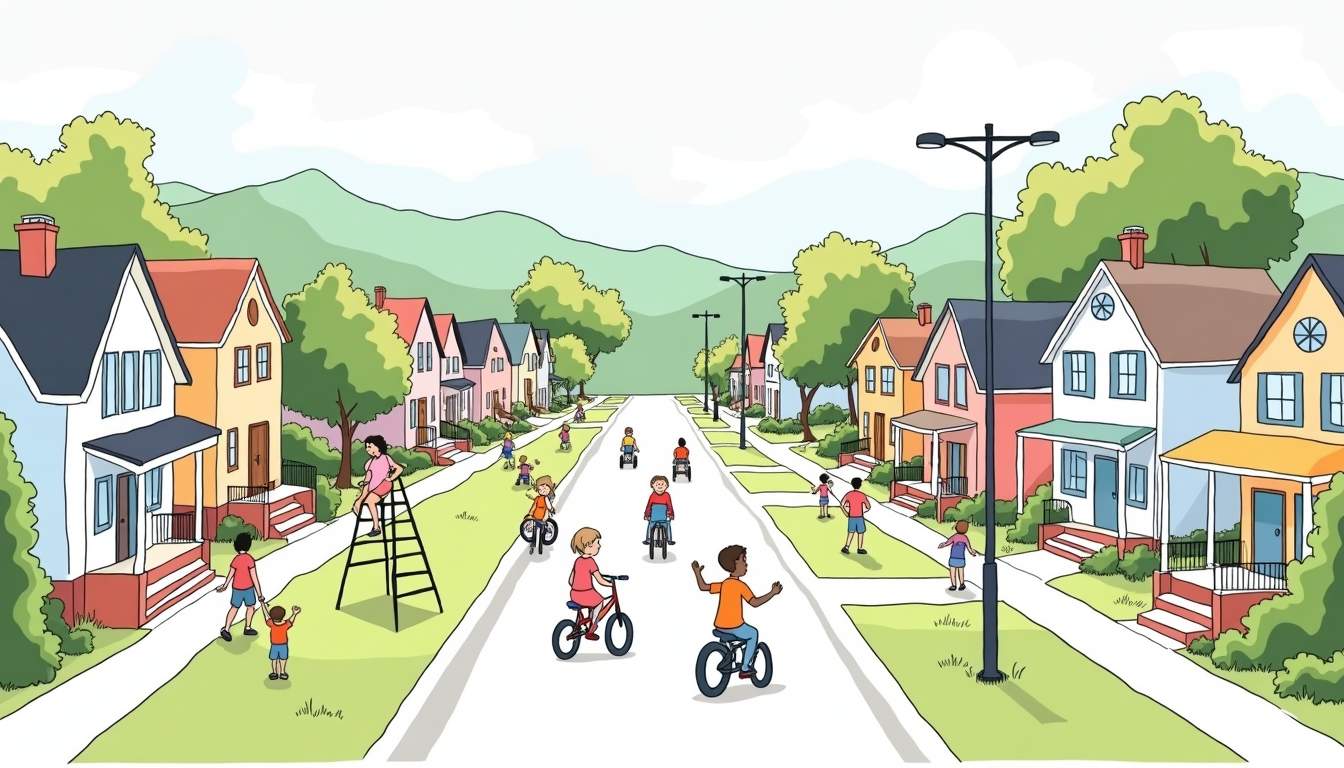
Finding the right place to raise a family means balancing schools, safety, green space, community amenities, and cost. East Tennessee has a range of communities that offer strong family-friendly features: walkable neighborhoods, reputable schools, outdoor recreation, and a warm sense of local connection. This article outlines what makes an East Tennessee community ideal for families with children and highlights specific neighborhood traits and amenities that matter most to parents.
East Tennessee combines a moderate cost of living, access to mountains and rivers, and a culture that values family and community. Proximity to the Great Smoky Mountains National Park gives families a backyard for hiking, camping, and wildlife viewing, while small to mid-sized cities provide reliable services without the congestion of a major metropolitan area.
The region’s climate supports year-round outdoor activity for kids—warm summers, mild fall foliage seasons, and manageable winters. Families can go from a backyard barbecue to a day on a river or a weekend at a state park without long drives, which translates into more time spent together and more varied outdoor learning experiences for children.
Local schools and community centers often emphasize educational programs focused on nature, history, and the arts, fostering a well-rounded upbringing. Moreover, the presence of numerous farmers' markets and family-oriented festivals throughout the year creates opportunities for children to engage with local culture and agriculture in hands-on ways.
Additionally, the slower pace of life combined with strong neighborhood bonds provides a supportive environment for raising children, where families are more likely to know their neighbors and participate in community events. This atmosphere helps instill values of cooperation, kindness, and a strong sense of belonging from an early age.
Strong schools are at the core of any family’s decision to settle in a community. East Tennessee is home to a mix of public school systems and private schools known for both academic achievement and extracurricular programs. Many counties offer specialized magnet programs, STEM academies, and dual-enrollment with nearby colleges for high school students.
Smaller school districts often mean greater community involvement and more personalized attention. Parents can expect active PTA organizations, volunteer-run enrichment programs, and partnerships with local businesses and universities—providing students with mentorships, internships, and early exposure to science, arts, and trades.
In addition to traditional public and private options, East Tennessee has a growing number of charter and independent schools that cater to diverse educational approaches, including Montessori, Waldorf, and classical education models. These schools often focus on individualized learning plans, creative problem solving, and fostering critical thinking skills from an early age.
Furthermore, many schools in the area prioritize inclusion and diversity, offering programs that support students with special needs and English language learners. Resources such as counseling services, advanced placement courses, and after-school tutoring are widely available to ensure every child has access to a comprehensive and supportive learning environment.
Access to quality early childhood education and preschool programs is plentiful in East Tennessee. Many communities offer state-funded pre-K options, private preschools, cooperative childcare, and faith-based programs. These early programs emphasize socialization, basic literacy, and school readiness—helping families transition confidently into elementary school.
Local libraries and community centers also play a significant role in early childhood development by hosting story times, music classes, and parent-child workshops that supplement formal schooling. Many areas have family resource centers that provide guidance and support to new parents seeking the best educational opportunities for their young children.
One defining feature of an ideal East Tennessee community is immediate access to outdoor spaces. Local parks often include playgrounds, splash pads, athletic fields, and walking trails suitable for strollers and bikes. Many neighborhoods are planned around greenways and creekside trails that connect schools, shopping areas, and community centers, encouraging healthy, walkable days.
Proximity to larger natural areas elevates family life further. With the Great Smoky Mountains a short drive away from many cities, weekend adventures can include easy family hikes, waterfall visits, and nature centers that offer guided programs for children. River access is also a strong draw: canoeing, tubing, and fishing teach kids resilience, safety, and respect for the environment.
Nature centers, state parks, and local nonprofits run seasonal camps that focus on ecology, outdoor skills, and science. These programs give children hands-on experience with wildlife, forestry, and conservation, and many offer opportunities to earn junior ranger or educational badges that reward learning and curiosity.
Housing variety is a hallmark of East Tennessee: historic brick homes in tree-lined neighborhoods, suburban single-family homes with yards, and newer developments with community pools and playgrounds. Many communities offer mixed-use town centers where grocery stores, pediatricians, and coffee shops sit within walking distance of residential streets.
Affordability remains competitive compared to national averages, especially for families seeking more space. Yard size and housing price can vary significantly depending on proximity to city centers; suburbs and smaller towns often provide more square footage and green space for the same budget as tighter urban cores.
Safety is a top priority for families. Many East Tennessee towns rank well for low crime rates and active neighborhood watch programs. Traffic congestion can be minimal compared to larger metro areas, though commuting times will vary by location and proximity to employment centers like downtown Knoxville, research parks, and industrial hubs.
Families who prioritize shorter commutes often select neighborhoods close to downtown employment or along major transit corridors. Others trade commute time for larger lots and quieter streets, choosing communities with strong online parent networks and carpooling systems for school runs and extracurriculars.
Access to pediatric care and hospitals is essential when choosing a community. East Tennessee hosts several reputable medical centers and children's hospitals that provide routine care, specialized pediatric services, and emergency treatment. Many communities are within a reasonable drive to comprehensive medical facilities and urgent care clinics.
Support services for new parents—lactation consultants, parenting groups, and early intervention specialists—are increasingly available through hospitals, community centers, and local nonprofits. This network helps families feel supported through milestones like newborn care, developmental screenings, and school transitions.
A thriving community calendar is a major part of family life. Local festivals, farmers markets, and holiday parades create traditions that help children feel rooted and connected. Many towns host summer concert series, outdoor movies, and seasonal fairs that are geared toward family participation and community bonding.
Public libraries play a central role in family enrichment, offering storytimes, homework help, craft days, and teen programs. Libraries often partner with schools and parks departments to run reading challenges and educational events that keep kids engaged year-round.
Youth sports leagues—soccer, baseball, basketball, and swimming—are widely available and often community-supported. For families focused on arts and culture, dance studios, community theaters, and music schools provide classes for toddlers through teens. These programs foster creativity, teamwork, and confidence outside of the classroom.
East Tennessee communities tend to emphasize neighborliness, volunteerism, and family-first values. Churches, civic groups, and local charities are active and visible, creating informal safety nets that help families navigate school transitions, financial bumps, or health challenges. The local culture often encourages multi-generational involvement in family life, with grandparents and extended relatives playing active roles.

Diversity is growing in many neighborhoods, bringing a wider range of cultural festivals, restaurants, and community dialogues. That expanding diversity enhances educational opportunities, exposing children to different perspectives and cuisines in everyday life.
Taxes and the cost of living are practical components of the decision. Tennessee’s lack of a state income tax on wages is often attractive to families budgeting for childcare, education, and housing. Property tax rates and utility costs vary by county and municipality, so comparing neighborhoods includes looking beyond sticker prices to ongoing household expenses.

Childcare costs, after-school programs, and extracurricular fees should be factored into any family budget. Many employers in the region offer childcare assistance or flexible scheduling, and some communities provide sliding-scale programs based on income to help ensure access for more families.
When evaluating a prospective neighborhood, families should consider specific, actionable questions: How long is the typical commute to work and school? What are the school performance data and extracurricular offerings? Is there a pediatrician or hospital within a short drive? Are parks, grocery stores, and daycare options within easy reach?
Visiting at different times—weekday mornings, weekend afternoons, and during school hours—gives a realistic feel for traffic, noise, and neighbor activity. Attending a PTA meeting, a farmers market, or a community festival offers a sense of community warmth and how residents interact with one another.
Spend a week or two as a local: use public trails, shop at local stores, enroll in a short class or camp, and strike up conversations with parents at playgrounds. Observe where families spend time and what’s missing. These insights often reveal more than statistics or real estate listings.
The ideal East Tennessee community for families blends strong schools and healthcare access with abundant outdoor recreation, affordable housing options, and a supportive cultural environment. A neighborhood that prioritizes safety, walkability, and communal events makes everyday life convenient and celebratory.

Rather than one-size-fits-all, the best choice depends on how a family balances priorities: shorter commutes or larger yards; urban amenities or rural calm; established traditions or rapid growth. With thoughtful research, on-the-ground visits, and conversations with local families, East Tennessee offers multiple communities where children can grow curious, healthy, and connected.
For families seeking a perfect balance of luxury, safety, and outdoor living in East Tennessee, Tennessee National offers an exceptional gated community designed with your lifestyle in mind. From a Greg Norman Signature Golf Course and private marina to waterfront dining and over 20 member amenities, every day brings opportunities for adventure and connection. Explore move-in ready homes or customize your dream residence amid scenic trails and vibrant social clubs. Schedule your private tour today and begin creating lasting memories with your family in the heart of Tennessee National.